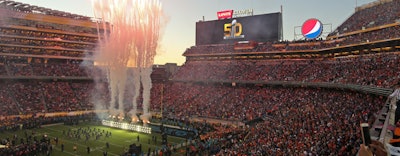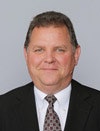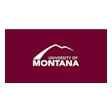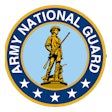
A typical NFL stadium hosts 10 home games during a season. Each of those 10 games will unfold in a pretty routine manner for the stadium operations and security team, adjusting for factors such as the weather, the culture of the visiting team or the significance of the game's outcome.
 Craig Graber, Director, Stadium & Event Operations
Craig Graber, Director, Stadium & Event Operations
Hosting the Super Bowl is an entirely different matter, bringing in two non-local teams (typically) for the biggest U.S. sporting event of the year, as well as their fans, a lineup of pregame events and a whole new set of security challenges. There's a lot that could go wrong, and yet the NFL-led organization for Super Bowl 50 at Levi's Stadium in Santa Clara, Calif., "was pretty close to flawless," according to vice president of stadium operations and general manager Jim Mercurio, "It was so well designed, so well orchestrated, so well run."
Mercurio would know — he has been involved in gameday operations for 23 Super Bowls. Though hosted by a different venue each year, the gameday security and operations plan for each Super Bowl is built off of years of experience and best practices balanced with the host team's own depth of knowledge and that of the NFL's team of professionals.
 Jim Mercurio, Vice President, Stadium Operations and General Manager
Jim Mercurio, Vice President, Stadium Operations and General Manager
PASSING THE PLAYBOOK
The host team has plenty of time and assistance to prepare. "It starts as soon as you receive the bid," says Craig Graber, director of stadium and event operations. "Two years out, you start to put the plans together. A year out, after the previous Super Bowl ends, you start to get boots on the ground from the NFL and their planning department."
These advance preparations also include getting some firsthand experience from peers. "Most of my direct-reports went to Arizona and New York to shadow those games and understand what to expect from the Super Bowl coming to Levi's Stadium," Mercurio says. "It's a program the NFL institutes and does well. Those whom we'll be working with can share institutional knowledge."
Likewise, Mercurio and his team welcomed visitors from Houston and Minnesota (hosting in 2017 and 2018, respectively) in the days surrounding the big event and will continue to follow up with their counterparts over the coming months. "That sharing of experiences and best practices is crucial," says Levi's Stadium director of guest services Kieran Nulty. "I was in contact with my counterparts for MetLife and University of Phoenix stadiums to ask them what their challenges were. As much as you can, learn about what's coming at you from the people who have been through it."
 Kieran Nulty, Director of Guest Services
Kieran Nulty, Director of Guest Services
The NFL also plays a crucial role in bringing together the various local, state and federal entities that will be involved in the security and gameday experience planning process. "As far as the game, the Santa Clara Police Department took charge, coordinating all the efforts with the FBI, National Guard and other law enforcement officials," says director of stadium operations and logistics Julian Sakti. An estimated 50 security entities were involved in gameday security operations, many of which were experienced in Super Bowl security, if not the specific environment of Levi's Stadium.
Naturally, the Levi's Stadium operations team played a crucial role. "The NFL does a good job communicating and coordinating what its expectations are and involving staff," Mecurio says. "Our entire gameday staff worked the game. The seating sections, the clubs, the gates — most of those folks worked for Levi's Stadium. They were folded into the overall security plan."
 Julian Sakti, Director, Stadium Operations Logistics
Julian Sakti, Director, Stadium Operations Logistics
NOT YOUR TYPICAL GAMEDAY
The busiest period of preparation comes in the weeks leading up to the game. "It starts ramping up until we get to six weeks out from the Super Bowl," Graber says. "You've got people coming in and the whole campus begins to change. A week out, the 300-foot perimeter goes into effect. In our case, that was shutting streets down, building campuses."
Not only was the security team preparing for the actual game, but also numerous pregame events hosted by myriad organizations in the areas around the stadium, turning the area into a completely different landscape. "All the planning got started a year before, as we got really detailed as to what we were going to put in these parties," Graber says. "We started the permit process two to three months out as we started to get that information in, but the permits ask for a lot of information — architectural drawings and info that really comes in as the build goes on. A good three weeks out we were finishing up most of those permit processes."
Then there were the preparations that needed to take place on the actual day of the event. "We had staff showing up in the thousands as early as 6 or 7 a.m., going through a stringent checking-in process, showing ID in exchange for credentials," Nulty says. "By the time we were fully open, we had well over 10,000 people just working inside the secure perimeter."
MORE FROM GAMEDAY SECURITY: Tightening Front-Line Security in Stadiums, Arenas
The thousands of staff members included a mix of regular Levi's Stadium personnel and those brought in just for the event, many of whom had been trained by Nulty and the NFL. Says Nulty, "The NFL does a wonderful job of leveraging the experience and knowledge that already exists to bring the new folks up to speed and make sure the gameday experience from the guest perspective is seamless."
From a security standpoint, the entire event was nearly seamless, according to Mercurio. There was one incident in which an airplane inadvertently entered the no-fly zone around the stadium, but it was quickly dispatched by local law enforcement. The bulk of the events handled by the team's incident-tracking system were more typical of any sporting event. "Speaking in reference to a 70,000-person event, you're never going to have an event where somebody doesn't need some type of assistance," Mercurio says. "We're here to assist them while they're in our care. For the most part, they were extremely well behaved."

ADDING TO THE LEGACY
The new challenges and experiences of each successive Super Bowl bring new lessons to pass along to future hosts. This year, for example, there was an issue with bussing that left some staff members waiting two or three hours for transportation home after the event. "That would be the one issue where we fell short a bit," Mercurio says. "It just had to do with everybody leaving at the same time and getting busses back in time."
Ultimately, employees were compensated for the extra time they had to wait to get home, but in future years, better preparation will likely eliminate the issue altogether. "There's always going to be lessons learned, but for this case, we were extremely proud of the way the host committee worked with us and we with them," Mercurio says. "We look forward to the stadium being available for a Super Bowl down the road."

The experience also gave the 49ers operations team a chance to refine their best practices and processes. The most notable change was the adoption of a new project-management tracking tool, says Mercurio. "We developed this process that allows us to track 30 or 40 different entities requesting services around the building, and we're now putting that into our everyday request tracking form," he says. "For example, we'd get requests from the NFL, NFL Tailgate or CBS. We had all these different requests coming to us to do things, just like we do with internal requests from public relations, sales and marketing. We've taken that communication mechanism and are using it internally to track projects."
Twice-daily meetings during the days leading up to the Super Bowl also served as an eye-opening lesson in communication, adds Garber. "We met with the NFL in the morning, then our stadium operations crew in the evening, and every faction would report on what was going on. The communication and knowledge in our department was great."

TTHE BIG PICTURE
Whether a college stadium hosting a bowl game or a high school planning for a tournament, there are lessons to be borrowed from the pros on how to coordinate and keep safe a special event. "One of the really important things is to get in on the ground floor and get with the local organizing committees and delve in to find out everything you can," Graber says. "Don't just think about security. You need to know everything that's going on."
The key is to understand the role of the operations team in relation to the other stakeholders in an event. "When you have an operations department, it is the hub of an event," Mercurio says. "The different spokes of the wheel are critically important to making sure the wheel rolls down the road. They must be given the communication devices and other tools they need to make sure everybody is informed — sales, marketing, janitorial have to have two-way communication to the center of the hub."
This article originally appeared in the Spring 2016 issue of Gameday with the title "Super Bowl Security Plan"

































